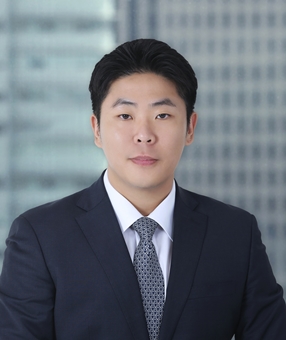2024 is a watershed for the world’s legal, regulatory and policy landscape around artificial intelligence, prominently marked with the recent adoption of the EU Artificial Intelligence Act - the first-ever overarching AI law on the books. In the midst of such transformative times, as perhaps one of the world’s most digitally connected countries, South Korea continues to make strides in developing an effective regulatory framework for AI and its various underlying technologies. Our inaugural AI Issues and Implications in Q1, 2024 report focuses on such legal and regulatory developments in Korea, spanning across several legal domains. These developments include:
|
1. |
Content Regulation and Copyright |
-
Korea’s Election Laws on AI-Generated Content
|
– |
Earlier this year, Korean lawmakers revised the Public Official Election Act to prohibit the use of deepfakes for electoral campaigning purposes. They are also in midst of reviewing several other bills directed to governing the use of generative AI. |
-
Copyright and Watermarking in the Age of Artificial Intelligence
|
– |
The Ministry of Culture, Sports and Tourism’s recent guidelines provide helpful policy directions to companies for addressing ever-increasing copyright issues in the era of generative AI. Companies are also advised to closely monitor ongoing discussions in relevant regulatory taskforce on copyright issues and upcoming regulatory guidelines on labeling requirements for AI-generated content. |
|
2. |
Privacy |
-
Privacy and Automated Decision-Making Issues
|
– |
Korea’s current privacy regime does not provide clear guidance on several important privacy issues that emerge from different phases of developing and employing AI services. The Personal Information Protection Commission has been active in pursuing legislative actions, as well as publishing relevant guidelines. These developments can have far-reaching consequences on companies doing business in Korea. |
|
3. |
Antitrust and Competiton |
-
Self-Preferencing Algorithms and Data Concentrations
|
– |
The Korea Fair Trade Commission is paying increasing attention to “self-preferencing” by AI service providers, where AI algorithms are used to display their own products more prominently in search results, as well as their practice of collecting and using competitors’ information or consumers’ personal information. |
|
4. |
Labor and Employment |
-
Do Platform Workers with AI-Assigned Job Duties Qualify as “Employees”?
|
– |
While there is no Korean legislation or precedent that clearly answers whether platform workers that are assigned job duties by AI systems constitute “employees” under the Labor Standards Act, recent foreign precedents on this topic, as well as Korean court decisions on analogous issues, can be used as guideposts until further clarity is provided through legislation. |
|
5. |
Foundation Models and Platforms |
-
Regulatory Sandbox May Allow Financial Companies’ Use of Cloud-Based AI Services on Internal Networks
|
– |
While many believe AI has the potential to revolutionize the finance industry, the adoption of cloud-based AI services has been hampered by the Electronic Financial Transactions Act, which requires financial companies to segregate their networks and prohibits cloud-based services on internal networks. A recent financial regulatory sandbox initiative could allow financial institutions to experiment with cloud-based AI services. |
|
6. |
Governance and Risk Management |
-
Classification Criteria and Types of High-Risk AI Systems in Korea
|
– |
Akin to the EU AI Act adopted on March 13, 2024, there have been legislative movements in Korea to more closely regulate high-risk AI systems. While such development is currently limited to bills pending before the National Assembly, they indicate the Korean government’s likely alignment with the EU’s regulatory approach when it comes to governing high-risk AI systems. It will therefore become even more important for business operators to review in advance whether any AI system they use (or intend to use) constitutes a high-risk AI system and how such system could be governed in Korea in the future. |
Attachment AI Issues and Implications in Q1, 2024.pdf












